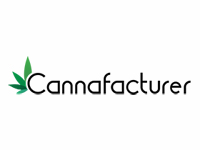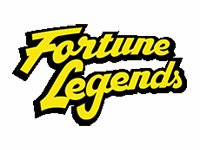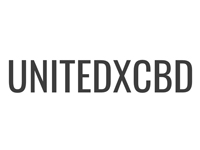Tips and Tricks for Mastering Local SEO with Best SEO Company London UK
Local SEO is an incredibly effective way to market your local business online, reach new customers and grow your business. It’s also a very complex landscape, with hundreds of factors that can influence your ranking and visibility in local search results. To help you navigate this landscape, we’ve put together a list of our top local SEO tips and tricks. These tips are designed to help you get started with local SEO, or take your existing local SEO efforts to the next level. As the world of digital marketing continues to grow, so does the importance of local SEO. Local SEO is a process and technique used to optimize a website for specific geographical locations. The goal of Local SEO is to increase the visibility of a website in local search results.
Tips:
- There are a few key things to keep in mind when it comes to Best SEO Company London UK. The importance of local search optimization can’t be overstated. This means including your city and state.
- It is also important to create local content. This can be achieved by writing blog posts that are relevant to your city or state, as well as creating local landing pages.
- Another important tip is to make sure your website is listed in local directories. This can be done by submitting your website to such directories.
- It is important to keep track of your Local SEO efforts. This can be done by using Google Analytics to track your website’s traffic and progress.
Tricks:
- Choose the Right Keywords
Finding and filtering the right keyword is the first step to ranking well in local search. When choosing keywords, think like your customer.
- Optimize Your Google My Business Listing
Google My Business is a free listing that appears in Google’s Local organic search results. Optimizing your GMB listing is essential if you want to rank well in local searches. Include accurate and up-to-date business information, such as your hours, phone number, and address. Add photos, videos, and a description of your business. Claim and verify your listing to show Google that you’re a legitimate business.
- Get Listed in Local Directories
In addition to Google My Business, there are other Best SEO Services London UK directories where you can list your business. These directories include Yelp, Yellow Pages, and Angie’s List. Include accurate and up-to-date information about your business, and use keywords in your listing.
- Build Citations
It is an online mention of your name and address of your business on another website that is known as a citation.They’re an important ranking factor for local SEO. The more citations you have, the more likely you are to rank well in local search.
- Build Links
Links from other websites to your website are an important ranking factor for Best Local SEO Agency London UK. The more links you have, the higher you’ll rank in search results Get links from reputable websites that are relevant to your business.
Conclusion:
Local SEO is a process and technique used to optimize a website for specific geographical locations. The goal of Local SEO is to increase the visibility of a website in local search results. There are a few key things to keep in mind when it comes to Local SEO, which include optimizing your website for local search, creating local content, and listing your website in local directories. Tracking your Local SEO efforts is also important.
=
SEO Beginner’s Checklist: 10 Tactics to Rank Higher with Local SEO Services London UK
One often overlooked and underutilized resource at the disposal of companies everywhere is their company website. Truth be told, most marketers make the mistake of taking a “set it and forget it” attitude towards what could arguably become their strongest selling tool. But all it takes to leverage this overlooked asset is a small investment in time, and a little bit of insight into what kind of changes could impact the bottom line. Applying the proper optimization techniques can help marketers fine-tune keywords, track and analyze online visitor patterns and prioritize hot from cold leads.
SEO is a black box for most people. The reality is that SEO can be boiled down to some very tactical best practices for your website. Below is an SEO checklist that includes the top 10 practices to optimize pages and increase search engine rankings.
1. Identify your target keyword(s) for each page
Each page should target only one primary keyword phrase. In addition, each keyword phrase should have only one primary page with it as a target. Maintaining a rigorous focus for each keyword and each page will help you rank higher for that phrase. The keyword phrase should be relevant to the content, be supported by the content on the page and be a term that will help drive your business.
2. Use the target keyword in the page name/URL
The URL or page name is one of the top content signals for the search engines. Including the target keywords in the URL is a great strategy for optimizing the page.
One often overlooked and underutilized resource at the disposal of companies everywhere is their company website. Truth be told, most marketers make the mistake of taking a “set it and forget it” attitude towards what could arguably become their strongest selling tool. But all it takes to leverage this overlooked asset is a small investment in time, and a little bit of insight into what kind of changes could impact the bottom line. Applying the proper optimization techniques can help marketers fine-tune keywords, track and analyze online visitor patterns and prioritize hot from cold leads.
SEO is a black box for most people. The reality is that SEO can be boiled down to some very tactical best practices for your website. Below is an SEO checklist that includes the top 10 practices to optimize pages and increase search engine rankings.
1. Identify your target keyword(s) for each page
Each page should target only one primary keyword phrase. In addition, each keyword phrase should have only one primary page with it as a target. Maintaining a rigorous focus for each keyword and each page will help you rank higher for that phrase. The keyword phrase should be relevant to the content, be supported by the content on the page and be a term that will help drive your business.
2. Use the target keyword in the page name/URL
The URL or page name is one of the top content signals for the search engines. Including the target keywords in the URL is a great strategy for optimizing the page.
For example, if your target keyword phrase is “portable ultrasound,” a great URL would be http://www.portableultrasound.com or http://www.medicaldevices.com/portable-ultrasound.html.
3. Use the target keyword in the first four words of your title tag
The title tag sits at the top of the browser bar and not on the main page of your site, which means it is often not seen by the visitor to the site. However, it is an extremely important piece of content for search engines for two reasons: 1) it is seen as the title of the page (hence the name of the tag) which is a major signal of what the important keywords are for the page, and 2) the title is used as the headline of the search engine result when this page shows up in the engine so it functions as double duty with an incentive to actually click on the listing. The first four words of the title tag are most important and should contain your target keyword and NOT your company name or brand.
4. Keep your title tag to less than 65 characters and make it unique
The search engines only display the first 65 characters of a title tag in the results. If you have more characters than this, you get an ellipsis with the title tag content which cuts off your marketing message. The engines are also on the look out for duplicate content that is getting re-used throughout the site. The engines value unique, original content above all else so making sure each title tag is unique is an important signal that you’re not just replicating the same content all over the site.
5. Use a single <H1> style tag for your page headline
<H1>, <H2>, <H3> are content styling tags used in HTML that change how text looks on a page when the browser displays the content. Search engines look at these tags as information hierarchy that helps them determine which content is the most important on the page. The <H1> tag is seen as the highest priority and should be used only once on each page to display the headline. <H2>s & <H3>s can be on a page multiple times for sub-heads, captions, etc.
6. Include your target keyword in the <H1> tag
Now that you have a single <H1> tag for each page, be sure it includes your target keyword for that page. The <H1> tag is a signal to the search engines for the important content on the page.
7. Make sure the body copy includes the target keyword
The body copy on the page has to support the work you’ve put into the URL, title tag and <H1> headlines. The page content should include at least 3-4 instances of the target keyword, with at least one instance in the first paragraph.
8. Write a unique, compelling meta description that includes the focus keywords
The meta description is not a piece of content that users see when they visit your pages as it is hidden inside the code. However, the engines will often use the meta description as the description in the search engine results page. This means the meta description functions more of a marketing purpose (getting people to click on the result) than a ranking purpose (getting your page ranked higher against a specific keyword).
You should use the focus keywords early in the meta description so that they are in bold when the search result shows up which will help with keyword association and click through.
9. Create a network of cross-linked pages wherever target keywords are used
One mistake we see on many sites is the use of text such as “Learn More” on a link. The search engines look at the visible text (called “anchor text”) in a link and give it a very high value as an indicator of content on the page that is receiving that link. Instead of just using “Learn More” as the anchor text use something more descriptive like “more about portable ultrasounds” and link to a page that has information about portable ultrasounds.
The point is that you should be using cross-linking to help tell the search engines which pages are important for which keywords.
10. Use alt-text and descriptive file names for your images
Search engine bots cannot read the text built into an image, but they can read the alt-text associated with the image and the file name of the image. Both of these can add target keyword content to the page and give you an opportunity to be found in the image search databases of engines. Google Image Search is the fifth largest search engine so ensuring your images are information rich is a solid strategy. For file names of your images, select a system for naming them that fits your development platform AND contains good keywords. It might take some planning up front, but can pay off with big search numbers from the image databases.
For example, if your target keyword phrase is “portable ultrasound,” a great URL would be http://www.portableultrasound.com or http://www.medicaldevices.com/portable-ultrasound.html.
3. Use the target keyword in the first four words of your title tag
The title tag sits at the top of the browser bar and not on the main page of your site, which means it is often not seen by the visitor to the site. However, it is an extremely important piece of content for search engines for two reasons: 1) it is seen as the title of the page (hence the name of the tag) which is a major signal of what the important keywords are for the page, and 2) the title is used as the headline of the search engine result when this page shows up in the engine so it functions as double duty with an incentive to actually click on the listing. The first four words of the title tag are most important and should contain your target keyword and NOT your company name or brand.
4. Keep your title tag to less than 65 characters and make it unique
The search engines only display the first 65 characters of a title tag in the results. If you have more characters than this, you get an ellipsis with the title tag content which cuts off your marketing message. The engines are also on the look out for duplicate content that is getting re-used throughout the site. The engines value unique, original content above all else so making sure each title tag is unique is an important signal that you’re not just replicating the same content all over the site.
5. Use a single <H1> style tag for your page headline
<H1>, <H2>, <H3> are content styling tags used in HTML that change how text looks on a page when the browser displays the content. Search engines look at these tags as information hierarchy that helps them determine which content is the most important on the page. The <H1> tag is seen as the highest priority and should be used only once on each page to display the headline. <H2>s & <H3>s can be on a page multiple times for sub-heads, captions, etc.
6. Include your target keyword in the <H1> tag
Now that you have a single <H1> tag for each page, be sure it includes your target keyword for that page. The <H1> tag is a signal to the search engines for the important content on the page.
7. Make sure the body copy includes the target keyword
The body copy on the page has to support the work you’ve put into the URL, title tag and <H1> headlines. The page content should include at least 3-4 instances of the target keyword, with at least one instance in the first paragraph.
8. Write a unique, compelling meta description that includes the focus keywords
The meta description is not a piece of content that users see when they visit your pages as it is hidden inside the code. However, the engines will often use the meta description as the description in the search engine results page. This means the meta description functions more of a marketing purpose (getting people to click on the result) than a ranking purpose (getting your page ranked higher against a specific keyword).
You should use the focus keywords early in the meta description so that they are in bold when the search result shows up which will help with keyword association and click through.
9. Create a network of cross-linked pages wherever target keywords are used
One mistake we see on many sites is the use of text such as “Learn More” on a link. The search engines look at the visible text (called “anchor text”) in a link and give it a very high value as an indicator of content on the page that is receiving that link. Instead of just using “Learn More” as the anchor text use something more descriptive like “more about portable ultrasounds” and link to a page that has information about portable ultrasounds.
The point is that you should be using cross-linking to help tell the search engines which pages are important for which keywords.
10. Use alt-text and descriptive file names for your images
Search engine bots cannot read the text built into an image, but they can read the alt-text associated with the image and the file name of the image. Both of these can add target keyword content to the page and give you an opportunity to be found in the image search databases of engines. Google Image Search is the fifth largest search engine so ensuring your images are information rich is a solid strategy. For file names of your images, select a system for naming them that fits your development platform AND contains good keywords. It might take some planning up front, but can pay off with big search numbers from the image databases.
For FREE SEO Consulting, contact Local SEO Company London UK.











































